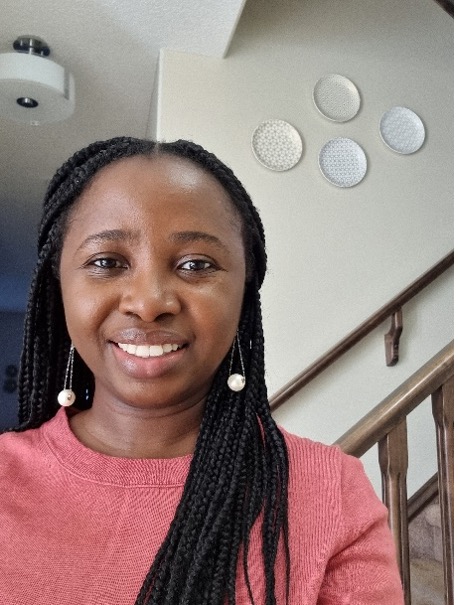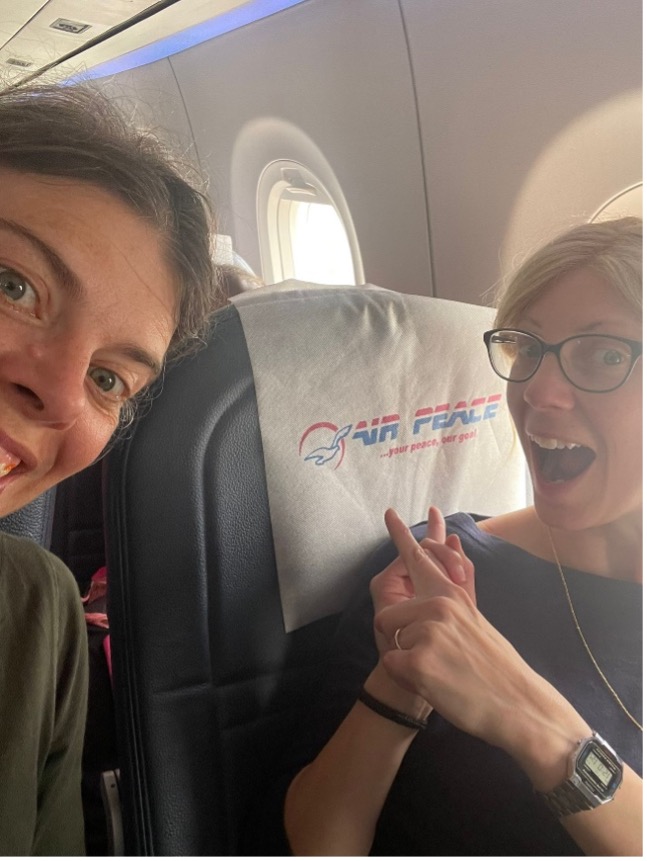Navigating chaos: A research trip tale
Embarking on a research trip is always an adventure, but it can suddenly become a rollercoaster of challenges. Today, I'll tell you one of the many unheard stories in research planning, where things did not go as planned. It all started when one of the Ibali ethnographers – Katie had her passport stolen a few weeks before the trip, sending the Ibali team into a frenzy. This is how I joined Ibali – as a last-minute addition with a Nigerian passport and skills in qualitative methods.

Picture 1: Enter me, Ibali’s new addition
The first hiccup came with booking my internal flight. We were conducting our research in Benin City, Edo state, and that meant that once we landed at Muritala Mohammed Airport in Lagos, Nigeria, we would have to book another internal flight to our final destination. Before I joined, the internal flight had been booked as a group, so cancelling Katie's ticket would mean cancelling every other person's ticket, which was not an option. We tried booking mine independently, but the tickets kept getting cancelled again and again. After the fourth attempt, we thought we had charmed our way to success. Little did we know, more hurdles awaited us.
We started our journey from Heathrow airport in high spirits, but our flight to Nigeria was delayed, the immigration line endless, and we arrived at the domestic airport just in time for me to miss my internal flight. We requested another flight and were told there were no flights available for the next three days! Jennifer sprung into action, reasoning with airport officials to fix me on a flight while the others tried to encourage me that all would be well. We soon found an agent who promised to get me on a flight by evening – "people always miss their flight" He said. "we'll find space for you". Eventually, the team left with their own flight, hoping we would reunite in the evening. How wrong we were.

Picture 2: Teammates on their flight, hoping to meet me soon.
Once the group left, the agent and I started the scramble to get on any available flight to Benin City. I constantly ran from one airport wing to another, dragging my luggage across ungraded roads, completely exhausted from a seven-hour flight from London to Nigeria. Panic set in when I found myself stranded in the airport, with no prospect of flying that evening, no accommodation, no Wi-Fi and a dying phone battery.
In a stroke of luck, I remembered the power of gatekeepers in research, and decided to apply it to my context. I put a call to a friend who got me on a flight for the following day with his insider connections. Another call to a relative helped secure an hotel accommodation near the airport, and a kind stranger helped to book a taxi to my hotel since I had no Wi-Fi. I arrived at my hotel room, twelve hours after I landed in Nigeria, only to discover that my internal flight had been cancelled AGAIN!
We couldn't recover the money for the cancelled ticket. Hours on hold with customer service yielded no results, and I had to secure another pricier flight. The next day started well until the air controller announced that our plane had a fault, leading to indefinite delays. Frustration and demotivation started setting in for me, and I was ready to book a flight home. I had a little bit of an identity crisis there; my home was Nigeria, and home was also the UK, but I didn't feel at home (Nigeria), and I wanted to go home (UK). Amid this identity debate about what home means to me, the airline crew was able to secure another plane, and I landed safely at my destination, where my team welcomed me.

Picture 3: Finally!
Reflecting on this ordeal, I realized the importance of administrative work in the success of field trips. Here are a few lessons learned:
- Get a Gatekeeper: Just as you need a gatekeeper for research access, having a local gatekeeper at each entry point is crucial for administrative purposes. Gatekeepers can be anything from local drivers to airport officials to hotel staff. They can help with navigating the unknown and overcoming unexpected logistical challenges.
- Always have local currency: Money speaks a universal language, and it is better to have more of it than to have a deficit when travelling to a different country. Having local currency on hand can smooth bumpy roads and expedite solutions.
- Know the context: there's an African proverb that says: when the rhythm of the song changes, the dance steps must also change. While it is important to have standard operating procedures for institutional and research purposes, understanding and adapting to the local context is equally vital. We must place contextuality at the heart of every decision-making, particularly in international contexts.
- Diverse Talents Matter: A team with diverse skills and personalities proved invaluable for easing my difficult journey. Technical gurus, logistics experts, action-oriented individuals and those who had empathy and caring skills all played a role in navigating the challenges that I encountered along the way. When building your dream project team, looking out for seasoned researchers is not enough; soft skills are equally important.
- Don't be afraid to ask for help: sometimes we must trust and rely on the kindness of strangers to take the next step. Our team trusted a travel agent, and I also trusted a kind stranger to help book a taxi. Although it may not always work out, it is worth asking for help.
- Breathe: Being in the midst of chaos can be overwhelming; remember to breathe. Some things will always be out of your control, and all you can do is tackle it one problem at a time.
Embarking on fieldwork is undoubtedly exciting, but sharing experiences and lessons learned is crucial for our open research at Ibali. So, here's to slaying logistical dragons and turning challenges into triumphs!
Acknowledgement: This blog was developed at an Ibali learning event. Thanks to Faith Mkwananzi, Jennifer Agnaire and Alison Buckler for their feedback in developing this blog.
.jpg)
